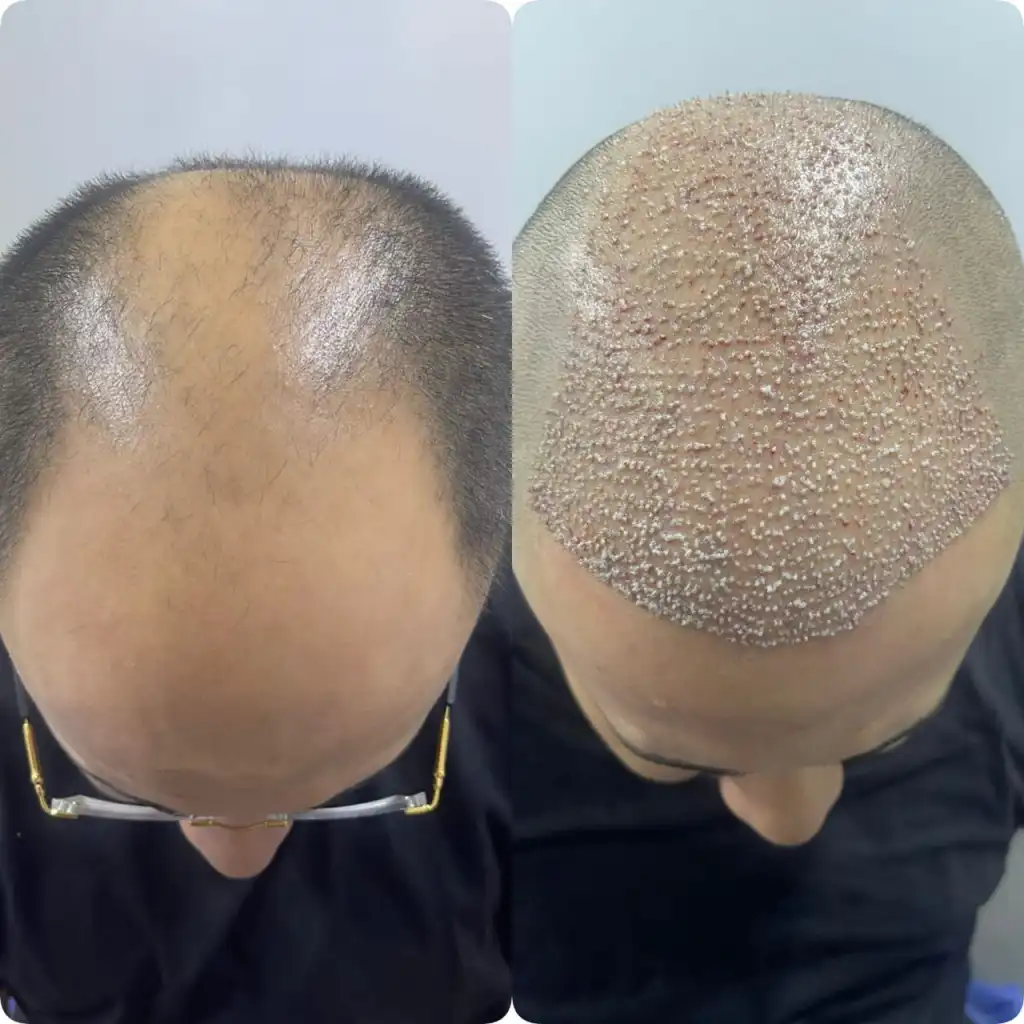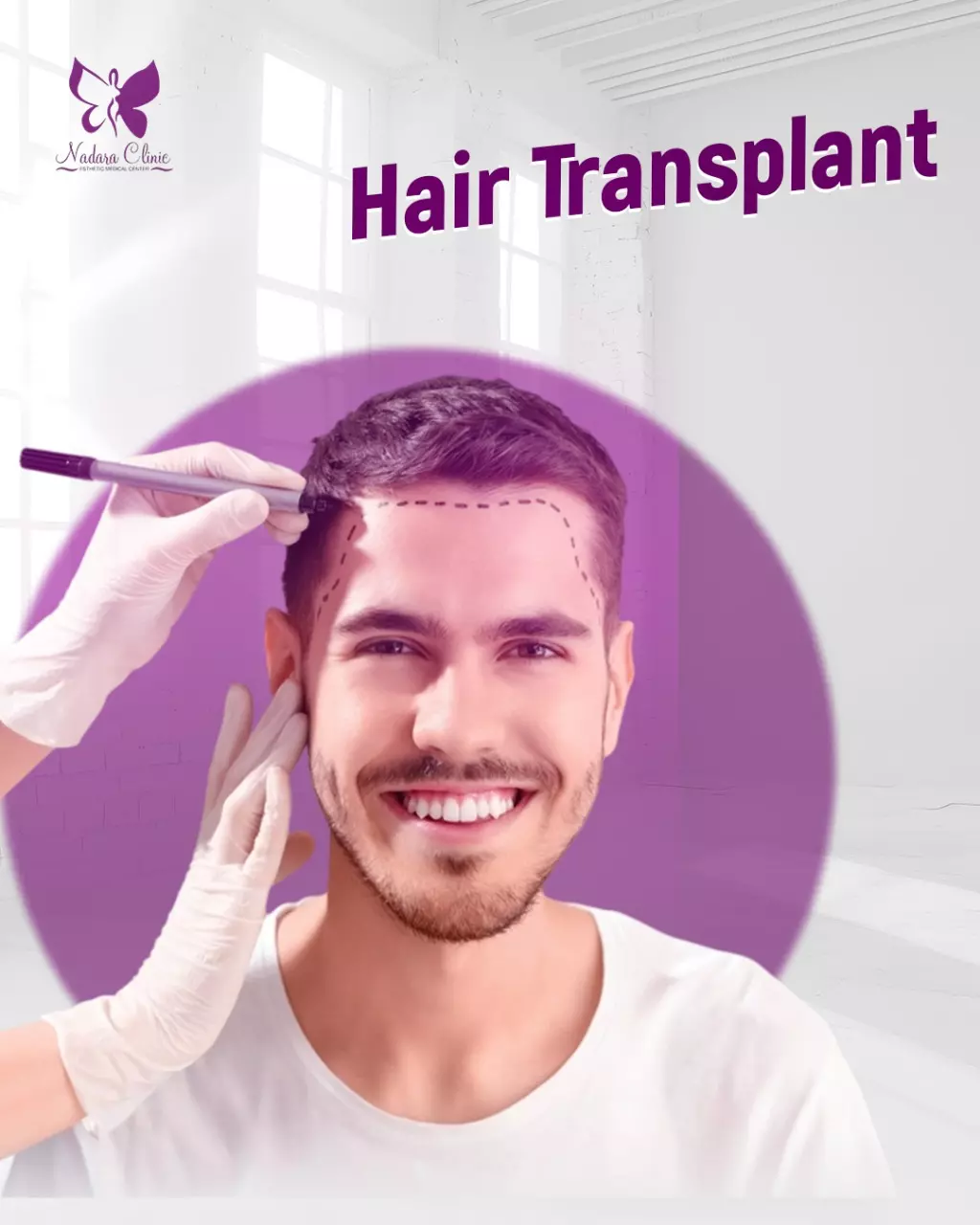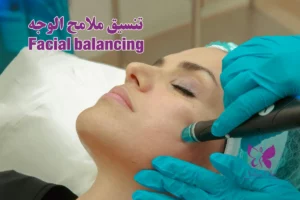While different technologies are available, all processes Hair Transplant It involves taking the follicles from the hair-bearing parts of the scalp and grafting them into thinner or bald areas, and most operations are successful, although the hair may take up to nine months before it takes root and begins filling the scalp. That's why talk with the surgeon of the skin, laser and plastic surgery center in Hurghada about the risks and benefits of hair transplant surgery and the results you can expect.
What is the hair transplant process?
Hair transplant surgery is a procedure used to treat hair loss. Various techniques are available, but all hair transplant operations involve taking the hair-bearing skin from one part of the scalp and grafting these pieces of skin onto the bald areas of the scalp or areas of trauma.
Hair loss may be due to male pattern baldness (also known as androgenetic alopecia), scalp infection, or scalp injury. Injuries from burns, surgery, or car accidents may leave permanent areas of hair loss that can be hidden by hair transplantation.
Certain inflammatory diseases, such as lichen planus, lupus or morphea, can lead to permanent areas of hair loss suitable for transplantation.
Hair transplantation is not a cure for male pattern baldness. The transplants will cover the bald scalp, but they will not protect you from further hair loss. Since male pattern baldness is a progressive condition for most men, it may be worth considering a combination of surgery and medical treatments to slow the balding process.
Things to consider before undergoing hair transplant surgery
Before you choose hair transplant surgery, there are some important things to consider, including:
- It is important to have realistic expectations. If you start without a lot of hair, transplantation will not give you a full head of hair. The thicker and thicker your remaining hair, the better the results.
- In general, thick hair with a light or gray color gives better results than thin hair with a dark color.
- After a hair transplant, it may take up to nine months before the hair takes root and begins to fill in the hair.
- If hair loss is caused by burns or trauma, hair replacement surgery is considered a reconstructive treatment.
- Smokers are at an increased risk of complications from surgery. So if you are serious about undergoing a hair transplant, you should try to quit smoking.
- There may be a need to continue medical treatment after hair transplant surgery.
Medical problems related to hair transplant surgery
Before the hair transplant operation, discuss the following medical issues with your doctor or surgeon in Hurghada:
- physical health; The examination will help your doctor or surgeon at the Freshness Center for Dermatology, Laser and Aesthetics in Hurghada to determine if the treatment is appropriate.
- medical history; Certain pre-existing conditions and past surgery may influence decisions about hair transplantation, including the type of anesthesia used.
- Hair assessment, including your hair growth pattern, extent of hair loss, history of hair loss in your family and any previous surgical or medical treatments for hair loss you may have
- Possible risks and complications of hair transplantation; It is important that you understand the risks and complications so that you can assess whether or not it is right for you.
- pharmaceutical; Tell your surgeon about any medication you take regularly or have recently taken, including over-the-counter products, such as fish oils and vitamin supplements.
- previous reactions to medications; Tell your surgeon if you have had a bad reaction or side effect from any medication, including anesthesia
- preparing for surgery; The surgeon in Hurghada will provide you with detailed instructions on what you should do at home to prepare for the surgery. For example, you may be advised to take a specific medication or change the dose of an existing medication, prior to the transplant.
Hair transplantation methods
Various approaches to implant surgery are available, and your doctor will choose the most appropriate surgery for you, based on your specific circumstances.
FUE hair transplant
The FUE technique is usually performed under local anaesthesia. Each treatment session can last from two to eight hours, depending on the number of hairs transplanted. It is possible to transplant between 1000-2000 hair follicles during one session, but larger areas of hair loss may require up to 4000 hair follicles per session.
A hair transplant session can take several hours, but many people choose to have two or three separate sessions, and the process may generally include:
- FUE hair transplant is usually performed under local anaesthesia.
- Each treatment session can last from two to eight hours, depending on the number of hairs transplanted.
- It is possible to transplant between 1000-2000 hair follicles during one session, but larger areas of hair loss may require up to 4000 hair follicles per session.
- A hair transplant session can take several hours, but many people choose to have two or three separate sessions.

flap surgery
Flap surgery is used if hair transplantation is extensive (for example, it requires a large tissue flap rather than small grafts). You may need to stay in the hospital for this type of hair loss surgery, and general anesthesia will be required.
Flap surgery includes:
- The surgeon implants balloon-like devices (called tissue expanders) under the skin in an area with hair on the scalp. The tissue expanders are inflated with more saline over a period of weeks. This encourages the area to grow more skin cells.
- After about two months, the scalp has developed enough additional skin for the transplant surgery.
- The bald portion of the scalp is cut and removed, then the newly transplanted area of hair-bearing skin is partially cut, moved to its new location and sutured in place. Because the flap does not separate completely from the scalp, it must maintain a good blood supply.
Scalp reduction surgery
Scalp reduction surgery Suitable for treating balding areas at the back and top of the scalp, not at the front of the scalp.
Scalp reduction surgery includes:
- Local anesthesia is given to the scalp.
- The surgeon cuts a slice of bald skin into a U or Y shape.
- The scalp is relaxed, and the incisions are brought together and stitched together.
What happens immediately after a hair transplant?
After a hair transplant, you can expect the following:
- bruising and swelling
- Possible numbness.
- Pain, throbbing and discomfort.
- A feeling of tightness in the scalp.
- Formation of small scales across the treated areas of the scalp.
Complications of hair transplant surgery
All surgeries involve some degree of risk, and some of the potential complications of hair transplant surgery include:
- General anesthesia risks, including an allergic reaction, which can (rarely) be fatal.
- Surgical risks, such as bleeding or infection.
- Scars that may be dangerous, red, and itchy.
- Nerve damage, including permanent loss of sensation.
- Square skin death.
- Tissue death along the wound.
- Further surgery to treat complications.
This is not a complete list of hair transplant complications, for example, your medical history or lifestyle may put you at an increased risk of developing certain complications. That's why talk to your surgeon at the skin, laser and plastic surgery center in Hurghada for more information.
Self-care after hair transplant surgery
General self-care suggestions after hair transplant surgery include:
- Follow all instructions for caring for your wounds.
- avoiding exercise or any strenuous activity that can lead to high blood pressure; Because this may lead to bleeding wounds. Your surgeon may advise you to avoid sex for about 10 days after your hair transplant.
- After the hair transplant, the surgeon reported any bleeding, severe pain, or unusual symptoms.
You can also read: Eczema treatment in Hurghada"
Long-term outlook after surgery
Once the hair starts to grow again, it should look normal; Because the hair is transplanted in the direction in which the hair naturally grows in this place. Most scars should be covered with hair and hard to see. Any visible scarring will be permanent, but it should fade over time, and finally be patient, improvements to the scars may take a year or so.
You can also read: “Laser hair removal in Hurghada”"
Hair transplant surgery alternatives
Non-surgical alternatives to hair transplant surgery include:
- Prescription medicines, such as creams.
- Wigs or hair extensions.
Accepting the idea that hair loss is a normal part of... agingIt may help to talk to a psychologist to work around your concerns about your appearance, and you may decide that you love yourself for who you are.
You can also read: Mesotherapy for hair problems"
After knowing all the details of the surgery Hair TransplantIn order to avoid the potential complications mentioned above, you should choose experienced and trusted doctors.






